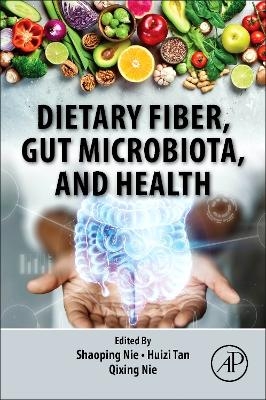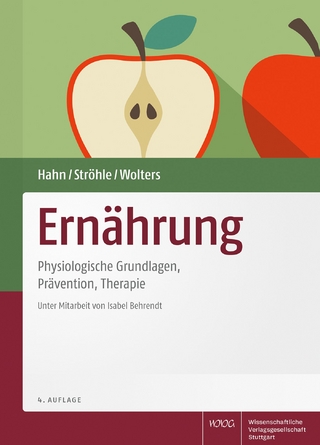
Dietary Fiber, Gut Microbiota, and Health
Academic Press Inc (Verlag)
978-0-443-21630-5 (ISBN)
- Noch nicht erschienen (ca. Januar 2025)
- Versandkostenfrei
- Auch auf Rechnung
- Artikel merken
Prof. Shaoping Nie received his Ph.D. in 2006 from Nanchang University. He is the dean of the School of Food Science and Technology and the deputy director of the State Key Laboratory of Food Science and Technology, Nanchang University. He has been long engaged in the structural analysis and physiological function research of food polysaccharides. He has obtained funding from the National Natural Science Foundation of China for the Outstanding Youth and Key International (Regional) Cooperative Research Projects and has won the second prize of the National Science and Technology Progress Award and the provincial and ministerial awards of Natural Science or Science and Technology Progress over ten times. The associated achievements have been published in journals like FEMS Microbiology Reviews, Trends in Food Science & Technology, Journal of Agricultural and Food Chemistry, Food Hydrocolloids, and Food Chemistry. Over 30 invention patents have been authorized. Dr. Huizi Tan received her doctorate in 2019 from Jiangnan University. She has been engaged in the research of gut microbiota-oriented health intervention and mechanisms. The physiological functions of pectin were systematically evaluated using animal models of chronic diseases. Efficient screening methods for low-abundance strains were established, and more than 1000 strains of core species in the human gut were isolated and obtained. The physiological characteristics of intestinal microorganisms were thoroughly analyzed, to explain the activity mechanism of pectin. Probiotic strains with alleviating microbiota disorder and host inflammation were developed. She has obtained funding from the National Natural Science Foundation of China, the China Postdoctoral Science Foundation, and the Natural Science Foundation of Jiangxi Province. The associated achievements have been published in journals like FEMS Microbiology Reviews, Trends in Food Science & Technology, Food & Function, Frontiers in Microbiology, and Applied Microbiology and Biotechnology. Five invention patents have been authorized. Dr. Qixing Nie received his Ph.D degree in 2020 from Nanchang University. He is a postdoctoral of the Department of Physiology and Pathophysiology, School of Basic Medical Sciences, Peking University. He has been long engaged in the metabolomics, gut microbiota and metabolic disease, and physiological function research of bioactive dietary fiber. He has obtained funding from National Natural Science Foundation of China-Youth Foundation, National scholarship for doctoral students, and excellent doctor degree dissertation of Jiangxi Province. The associated achievements have been published in journals like Cell metabolism, Food hydrocolloids, Trends in Food Science & Technology, Journal of Agricultural and Food Chemistry, Food Chemistry, and Molecular Nutrition & Food Research. Over 10 invention patents have been authorized.
Section A. Background: an overview of dietary fiber and gut microbiome
1. Introduction
Section B. Structure and functionalities: Dietary fiber contributes to the gut health
2. Nondigestible oligosaccharides
3. Pectin
4. Glucans
5. Fructans
6. Seed-extracted mucilages: Galactomannan
7. Tree-extracted mucilages: Arabinogalactan
8. Psyllium husk gums: Arabinoxylan
10. Microbial gums: Xanthan gum
11. Resistant starch
Section C. Unveiling mechanisms: Dietary fiber-microbiome interactions and heath outcomes
12. Bacteroidetes
13. Firmicutes
14. Actinobacterium: Bifidobacterium
15. Verrucomicrobia: Akkermansia
Section D. Perspectives: Research and Development of personalized applications
16. Dietary fiber-based products: Microbiota-Oriented intervention
| Erscheint lt. Verlag | 1.1.2025 |
|---|---|
| Verlagsort | San Diego |
| Sprache | englisch |
| Maße | 216 x 276 mm |
| Gewicht | 450 g |
| Themenwelt | Medizin / Pharmazie ► Gesundheitsfachberufe ► Diätassistenz / Ernährungsberatung |
| Naturwissenschaften ► Biologie | |
| Technik ► Lebensmitteltechnologie | |
| ISBN-10 | 0-443-21630-4 / 0443216304 |
| ISBN-13 | 978-0-443-21630-5 / 9780443216305 |
| Zustand | Neuware |
| Haben Sie eine Frage zum Produkt? |
aus dem Bereich


